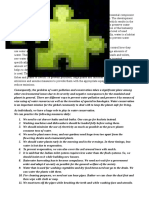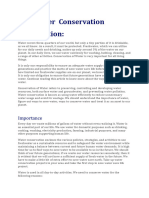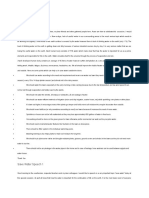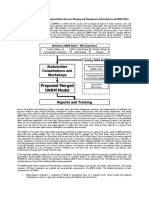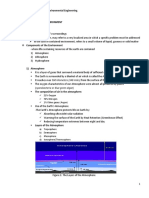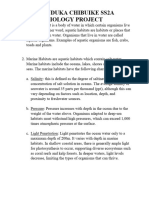0% found this document useful (0 votes)
29 views2 pagesReport Writing Practice 1
Text A discusses the severe consequences of water wastage, highlighting how daily habits contribute to water scarcity, droughts, and health risks. Text B offers practical methods for water conservation, emphasizing the importance of individual and community actions, as well as government involvement. Together, these texts stress the urgent need for awareness and action to preserve water resources for future generations.
Uploaded by
Pratleson YTCopyright
© © All Rights Reserved
We take content rights seriously. If you suspect this is your content, claim it here.
Available Formats
Download as DOCX, PDF, TXT or read online on Scribd
0% found this document useful (0 votes)
29 views2 pagesReport Writing Practice 1
Text A discusses the severe consequences of water wastage, highlighting how daily habits contribute to water scarcity, droughts, and health risks. Text B offers practical methods for water conservation, emphasizing the importance of individual and community actions, as well as government involvement. Together, these texts stress the urgent need for awareness and action to preserve water resources for future generations.
Uploaded by
Pratleson YTCopyright
© © All Rights Reserved
We take content rights seriously. If you suspect this is your content, claim it here.
Available Formats
Download as DOCX, PDF, TXT or read online on Scribd
/ 2





